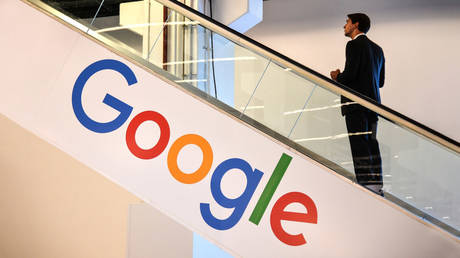Could Google Face a Breakup?
Despite being a setback for Big Tech, Alphabet remains the definitive leader of the internet.. source:TROIB RTS

This outcome represents a substantial victory for the Justice Department, which initiated the lawsuit. It also suggests a change in the judicial approach in favor of the government's stance against large technology firms. Notably, key players such as Apple, Amazon, Meta, and Google have all been targeted by antitrust lawsuits initiated during President Donald Trump's administration, possibly exposing them to more legal challenges.
Despite the ruling's importance, it might be viewed as belated. Google has solidified its dominance over the six years of legal proceedings, and even with this judgment, its market share may only be minimally affected. Efforts by Microsoft to dent Google’s market share by incorporating AI into Bing were largely ineffective, reinforcing the notion that Google might be too big to fail.
The alleged monopoly of Google is supported by strategic business agreements, possession of platforms like the Android operating system, and control over devices that default to Google's search engine, which the DOJ claims has stifled competitive opportunities in internet searching. This scenario has kept Google at the forefront, through both innovation and strategic practices that limit competition.
Judge Mehta's ruling recognizes that Google’s success over competitors is not solely due to default settings but also because it has developed a superior product. During discussions between Apple and Microsoft about potentially making Bing the default search engine on Apple devices, these plans did not come to fruition due to Google's more appealing offerings. Despite Microsoft's proposal to give Apple 100% of Bing's revenue, it couldn't match the earnings Apple gained from Google's 36% revenue share arrangement.
Looking ahead, although it's tough to envision an internet not dominated by Google, the ruling does crack open a door for possibilities such as forcing Google to share its data with rival search engines. However, similar measures in the European Union following an antitrust ruling against Google had little effect on reducing its market share. Additionally, the emergence of AI technologies like ChatGPT could diminish the relevance of traditional search engines. Despite AI's growth, Judge Mehta is not fully convinced that AI could replace traditional search methods just yet.
As the trial continues to explore potential remedies for Google's dominance, ideas like choice screens, restrictions on agreements, mandatory data sharing, or even compelling Google to divest assets like Chrome or Android are on the table. However, these remedies may not directly address the specific damages caused by Google’s actions.
The DOJ's successful case against Google may also impact other pending legal challenges against Big Tech, indicating that these companies could face ongoing legal pressures. Ultimately, while this ruling against Google could mark a shift in the technology landscape, it remains uncertain whether it will instigate profound changes or just be a minor detail in the saga of Google's continued dominance. For now, Google still commands a significant presence in the world of the internet.
Rohan Mehta for TROIB News












